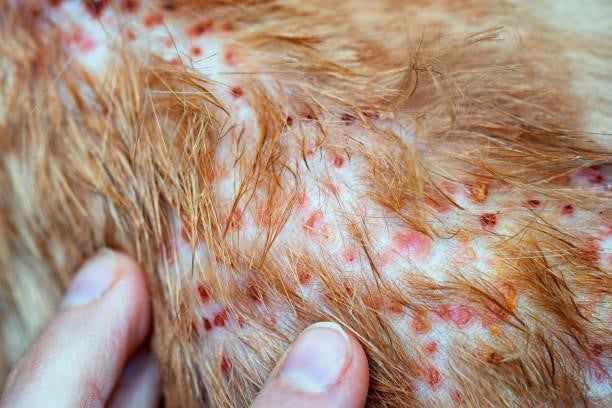
The act of mating between a male and a female dog with the purpose of having a litter of puppies is referred to as breeding. Breeders that want their offspring to have particular qualities and attributes are likely to engage in this typical kind of operation. On the other hand, when it comes to breeding dogs from the same mother, there are concerns raised over the potential risks and ethical dilemmas that might develop from this practise.
Can Dogs from the Same Mother Breed?
In a scientific sense, it is possible for canines who share the same mother to have offspring together. If they are of breeding age and have not been spayed or neutered, they are able to mate and have children as long as those conditions are met. This method, on the other hand, should be avoided at all costs for a number of different reasons.
There are a variety of health problems that can be caused by inbreeding in dogs. When two dogs who are closely related to one another breed, the likelihood that their puppies would acquire genetic defects and other health issues is increased. This is due to the fact that the genes that are responsible for these anomalies are more likely to be found in canines that are connected to one another.
Another practise that creates ethical questions is the breeding of dogs from the same mother. It is often regarded immoral to breed dogs from the same litter or dogs that are closely related to one another. This is due to the fact that it might cause genetic disorders to be passed down from generation to generation, which could be detrimental to both the dogs and their children.

Reasons Why It Is Not Advised to Breed Dogs from Same Mother
It is not advised to breed dogs from the same mother, as it increases the chances of inbreeding and genetic problems in the offspring. Inbreeding refers to the mating of closely related individuals, which can lead to a higher incidence of genetic disorders in their offspring. When dogs from the same mother are bred together, it can result in a higher likelihood of passing on harmful genetic traits, as they share the same genes and ancestry.
One of the main reasons for not breeding dogs from the same mother is the risk of inherited genetic disorders. Inbreeding can increase the chances of genetic disorders, such as hip dysplasia, epilepsy, and heart disease, being passed down to the offspring. In addition, breeding from the same mother can lead to a reduced genetic diversity in the offspring, which can result in weaker immune systems and a higher risk of inherited diseases.
Another reason why breeding dogs from the same mother is not advised is that it can lead to behavioral problems in the offspring. Inbreeding can result in an increased incidence of aggression and anxiety-related behaviors, as well as a decreased ability to adapt to new environments.
Furthermore, breeding dogs from the same mother can lead to a decrease in litter size and an increase in the rate of stillborn or deformed puppies. This is because inbreeding can result in a higher rate of genetic abnormalities, which can result in reduced fertility, developmental problems, and other complications during pregnancy and birth.
In conclusion, it is not recommended to breed dogs from the same mother, as it can increase the risk of genetic disorders, behavioral problems, and other complications in the offspring. Responsible breeding practices involve carefully selecting breeding pairs that are not closely related and have a diverse genetic background, to ensure the health and well-being of the offspring.
Other considerations
Breeding dogs from the same mother is not recommended due to the health and ethical implications associated with inbreeding. Inbreeding can lead to an increased risk of genetic abnormalities and health problems in offspring. The likelihood of genetic abnormalities increases as the level of relatedness between the breeding dogs increases.
In addition to the potential health risks, breeding dogs from the same mother can perpetuate genetic problems and reduce genetic diversity. This can lead to an increased risk of health problems in future generations.
Breeding dogs from the same mother is generally considered unethical due to the potential harm that it can cause to the dogs and their offspring. Responsible breeding practices prioritize the health and welfare of the dogs and their offspring.
Although it is theoretically possible for dogs that share the same mother to have offspring together, this practise is rarely encouraged owing to the risks to both the dogs' health and the ethics of the situation that are linked with inbreeding. The health and wellbeing of the dogs and their progeny should be given first priority during the breeding process; yet, inbreeding can cause these priorities to become compromised. Before breeding dogs, it is essential to discuss the process with a qualified veterinarian or animal breeding specialist to verify that all breeding procedures are both safe and in line with ethical standards.
Conclusion
In conclusion, while it is technically possible for dogs from the same mother to breed, it is generally not recommended due to the risk of genetic abnormalities and health issues in the resulting offspring. Breeding between closely related dogs can lead to the accumulation of harmful genes and can increase the likelihood of inherited diseases and other health problems. Responsible breeding practices involve careful selection of breeding pairs to ensure the health and genetic diversity of the offspring. It is important for dog owners and breeders to prioritize the well-being of the animals and make informed decisions when it comes to breeding practices.



